
Fri, May 23 02:05 AM
Back in the 6th century BCE, young Siddhartha, prince of the Sakyas, developed deep metaphysical anguish about the human suffering caused by aging, ailments, defilements and death. Is life no more than this, he wondered.
Renouncing everything, he moved from place to place in search of an answer, studied a lot and thought deeper and deeper with incredible austerity. Ultimately, the cycle of life, its cause, and way of cessation were revealed unto his adamant will.
Thus he became the Buddha, the perfected and enlightened one. It is an astounding episode of an intense spiritual quest leading to the discovery of a sunlit path.
The essence of his doctrine is that there is nothing in the universe, which can be identified as me or mine. There is neither a doer nor a sufferer, but merely a flow of phenomena.
Hence, hold on to this idea and be a witness to the universal flux. The four noble truths form the central concept of Buddhism: dukka (suffering), samudaya (the root cause of suffering), nirodha (the cessation of suffering) and magga (the marga or path leading to the end of suffering).
Suffering is at the core of existence, moving around craving or tanha, which causes repeated rebirths. Cessation of suffering occurs in a still mind, free of the flame of desire.
Neither addiction to sense-pleasures nor self-mortification can end suffering, so he prescribed the middle path of nibbana (nirvana), which is the noble eightfold path, of wisdom (panna), virtues (sila) and concentration (samadhi). Right mindfulness is the key to existence and eventual enlightenment.
The Buddhist meditation of mindfulness develops clear comprehension and complete awareness through contemplation of the body and breathing, feeling, mind, and mind-objects. This is a marvelous method of meditation.
The Buddha was a pioneer in the field of stress management, leading to a level of consciousness beyond stress.He established the first great monastic order (sangha) and he was a great experimental scientist in spirituality.
His influence, said Dr. S. Radhakrishnan, "is second to none in shaping the thinking of human race.".











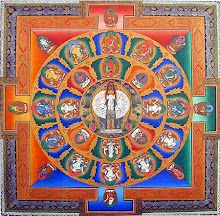




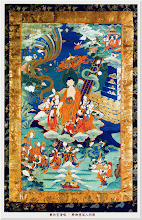

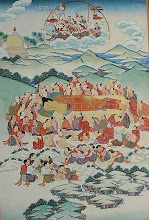


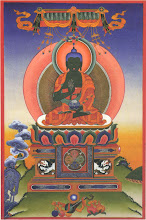




.jpg)

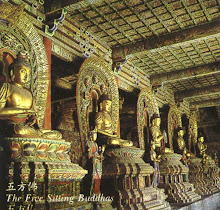













No comments:
Post a Comment